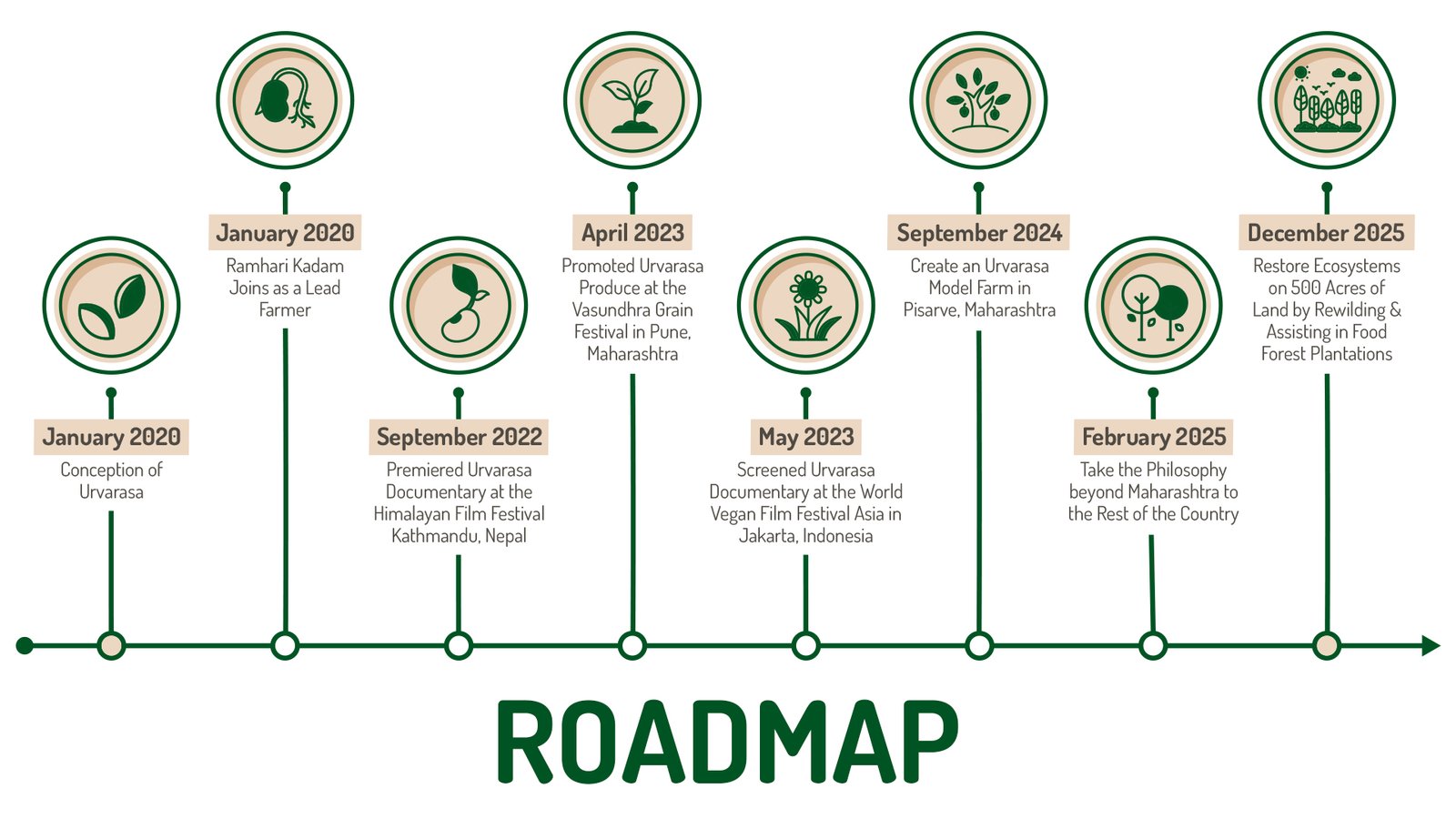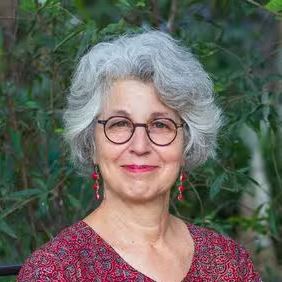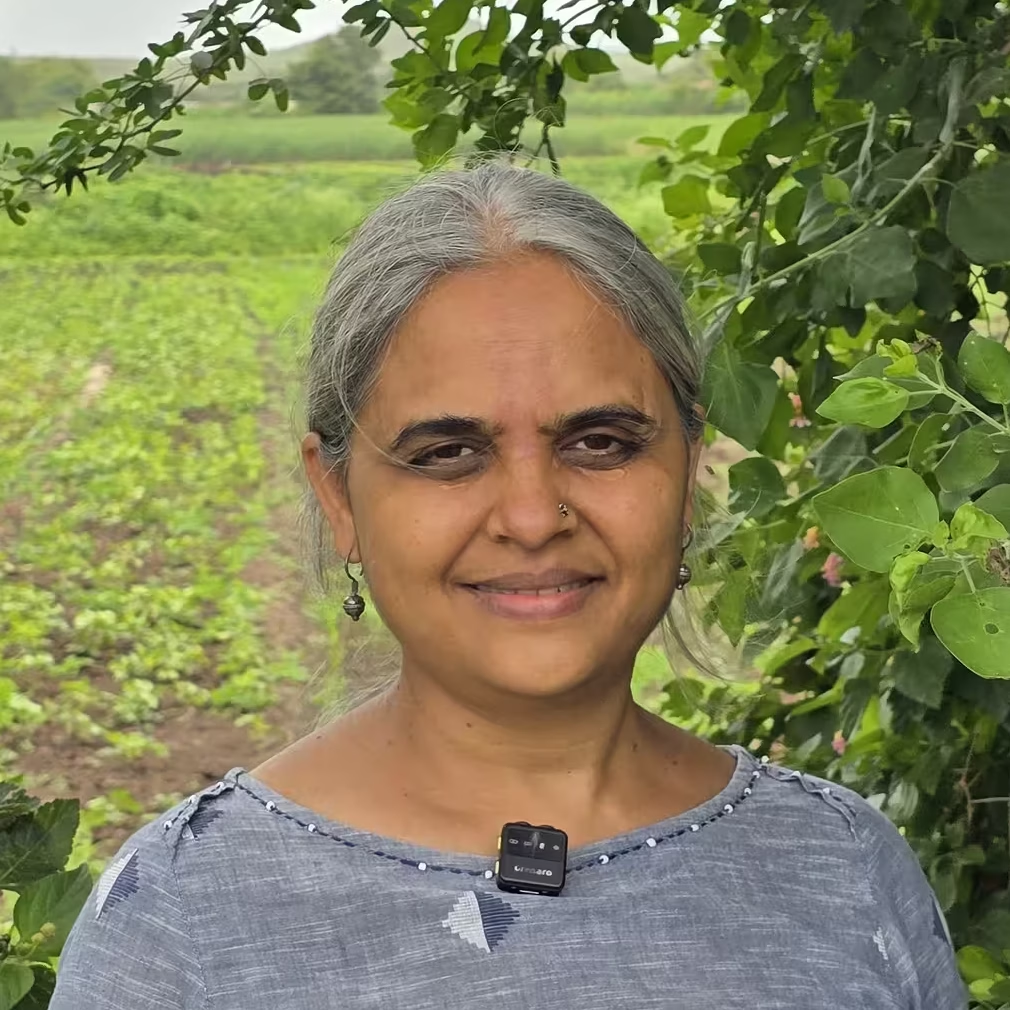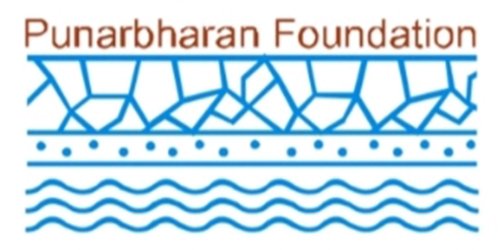About Us
Vision & Mission
Urvarasa is a project that seeks to partner with farmers who voluntarily implement and uphold a set of guidelines established by Jeeva Bhavana to grow their crops for conscious consumers who are seeking fairly-trade, sustainably-grown, cruelty-free and healthy food.
Farmers are duly compensated for their know-how and labour. We mentor, support and empower them to ensure their economic autonomy. They are connected with conscious consumers directly through established channels to ensure they get a fair price for their produce through optimal logistics.
Farmers take their role as guardians of seeds and soil health seriously by neither using chemical inputs nor any other inputs coming from outside their farm while using minimum to no heavy machinery. Crops must be adapted to the soil and climate of each farm, and low water-intensive crops are privileged.
Animals that live on the farm are not bred, exploited or sent to slaughter, but instead, live out their lives alongside their human caretakers who ensure that their basic, species-specific needs are satisfied. Natural farming techniques often use cow manure and urine as fertilisers; there is nothing amiss in using waste to maintain soil fertility as long as no animal is exploited.
Whole plant-based food is as good for human health as for environmental health. We ensure a holistic transition for our farmers and their families while ensuring their nutritional needs are met through a plant-based diet and their farms are transitioned to grow sustainable plant foods.
Goals & Objectives
- Help farmers in India transition from animal-based to plant-based agriculture.
- Promote plant-based agriculture and the products derived from plants.
- Educate the Indian public on the health benefits of adopting a plant-based diet.
- Educate the Indian public about the environmental destruction due to animal agriculture and pastoralism.
- Promote natural, toxin-free agriculture.
- Promote the research and documentation of the current agricultural systems in India, including at Urvarasa farms.
- Help to restore and rejuvenate ecosystems and rewilding in India.
- Promote and help to establish food forests in India.
- Build a waste-free farm products distribution system.
Natural & Veganic Farming Techniques
In natural farming, nutrients for the soil are derived from biomass available in the form of crop residue and foliage from trees, grasses and weeds growing on the farm itself. Crop rotation and multi-cropping practices also help in adding nutrients to the soil. Practices like ploughing, tilling and weeding are kept at a bare minimum. Animal waste in the form of Jeevamrut, a fermented mixture of cow dung, urine, gram flour and jaggery, may be used if animals exist on the farm. Natural, farm-made pesticides like Dashparni Ark and Neem Astra are used to control pests and diseases.
Taking it a step further, veganic farming means farming without the use of any animal products or by-products. Instead, bio enzymes, prepared from vegetable and fruit peels are added to the soil for nutrition. Soil fertility is maintained by using green manures, cover crops, green wastes, composted vegetable matter and minerals. Human urine and ‘humanure’, which provides nitrogen, produced from compost toilets can also be used to supplement the organic fertilisers.
Importance of Transitioning Food Systems
Animal agriculture, even on a small scale, is not economically viable for most farmers. Government subsidies have lured farmers into animal rearing on their farms. The hidden but very real costs incurred by the farmers to raise those animals, like fodder, veterinary care, medicines, electricity, etc., are seldom factored in and are usually unaffordable and unsustainable. After surveying several farms, we’ve concluded that farmers do recognise the flip side of animal-based farming and prefer to transition out of it if they are provided with solutions and support towards economic stability.
Plant-based foods are the best way to achieve and maintain optimal health and well-being, strive towards food sovereignty and security, and ward off a host of debilitating and deadly chronic and zoonotic diseases. Instigating and promoting the shift toward plant-based diets will ensure that demand follows supply and prompt a positive feedback loop for farmers, encouraging other farmers to follow suit.
The decline of animal agriculture will free up a tremendous amount of land. This greening of India will coincide with national developmental goals and programmes aimed at creating a sustainable economy and ecosystem.
Read More: Animal-based versus Plant-based Agriculture – Jeeva Bhavana
OUR PROCESS
OUR STORY
Past, Present & Future
After successfully organising the Pune Health and Sustainability Conference in 2019, Madhavi Kolte and Julie Wayne joined hands with Sanjeev Naik to co-found an India-centred environmental non-profit, Jeeva Bhavana Foundation.
Aligned with Jeeva Bhavana’s mission, Punarbharan Foundation, a Pune-based organisation which works on soil protection and water conservation, extended support to mentor farmers in their transition to natural farming practices. Interestingly, when we met Urvarasa’s lead farmer Ramhari Kadam, he was already exploring the natural farming practices as he understood the potential. He had already given up his dairy business after becoming aware of the unethical aspect of dairy farming and seeing first-hand the devastating environmental impacts of using animals as a source of food.
Thus ‘Urvarasa’, from the Sanskrit term for ‘procuring fertile soil’, was born to ensure that none of the elements in the food production system – whether that be the animals on the farm or the living organisms in the soil – are depleted, damaged or exploited, aiming to achieve healthier and a more just world.
Urvarasa is working towards setting up a model farm close to Pune to have the freedom to execute the vision in its entirety and work as a laboratory to find solutions to various natural farming-related hurdles. The farm will become a living example of how one can farm sustainably without the use of animals and in safer and healthier surroundings. We are also looking to create a social enterprise for the produce coming from the farm and engage urbanities to understand holistic and ethical farming practices. This farm can provide education to all stakeholders – farmers, consumers, experts, educationists, students, environmentalists and health professionals.

OUR Farmers
Urvarasa Model Farm
The Urvarasa Model Farm, located on one acre of Kolte family land in Pisarve, was revived after lying fallow for six years. Madhavi Kolte and Shivraj established it in 2024 to showcase plant-based, animal-free natural farming. Soil fertility was restored using plant-based, organic practices, and water usage is closely monitored. The farm has an ancient well as the main source of water. Despite the dry region, the farm produced high-quality wheat and chana, with more crops expected after the Kharif season. A fruit orchard is being developed, and surplus produce is sold to conscious buyers.
Produce Showcase
Urvarasa Model Farm
The Urvarasa Model Farm, located on one acre of Kolte family land in Pisarve, was revived after lying fallow for six years. Madhavi Kolte and Shivraj established it in 2024 to showcase plant-based, animal-free natural farming. Soil fertility was restored using plant-based, organic practices, and water usage is closely monitored. The farm has an ancient well as the main source of water. Despite the dry region, the farm produced high-quality wheat and chana, with more crops expected after the Kharif season. A fruit orchard is being developed, and surplus produce is sold to conscious buyers.
Bilva, The Natural Farm
Bilva Farm is a farm of passion—an area where both soil and soul are nourished. What started as a project is now a full-fledged farm that produces vegetables, pulses, lentils, greens, and fruits. A 1,600 sq. ft. congregation of trees, planted using the Miyawaki method of forest plantation, is the highlight of Bilva Farm.
The farm, which is less than an acre in size, is 7 years old, and the forest is 5 years old. Bilva Farm has never used chemicals since its inception, and it became fully vegan 3 years ago.
Bilva Farm also serves as an inspiration to surrounding farmers, instilling confidence and trust in organic farming, building soil health through natural methods, and enhancing crop resilience through soil-based solutions.
Balwad Baug
We are a family of agriculturists, farmers, gardeners, planters, growers and environmentally conscious citizens with a strong sense of social and national responsibility who wish to develop our agricultural land to create an example for conservation and preservation of natural and cultural heritage by functioning as an agro-tourist centre, hospitality and eco-education activity centre, and centre for training in natural, organic, sustainable and cruelty-free farming practices guided by the spirit of love and compassion, based on the eternal human value of Ahimsa.
We are slowly and steadily, within our means, conserving the greenery on the plot which is about 15 acres in size. The locals are rice growers and so we also grew rice in some terraces on the farm. We have planted over three hundred fruit trees and bamboo on the farm. We are learning from the locals while they are also watching our work, willing to learn from some of our practices. We managed to solve the problem of water by digging a 55 feet well on the farm that will now enable us to do more on the farm.
Vishwajeet Natural Farm
Vishwajeet Natural Farm, near Pandharpur, is run by brothers Ramhari and Laxman Kadam. Ramhari, a vegan in practice before knowing the term, stopped dairying after learning about the fate of male calves. For nearly a decade, he has embraced natural, chemical-free farming. The farm is home to rescued desi cow Sukhri and her calf Kosi, cared for with love but never milked. Their dung and urine enrich the soil naturally. The farm’s toor dal is gaining popularity among conscious urban consumers, and we aim to support Ramhari in building a thriving, dairy-free farming model to inspire others.
Gangadhar Baba Chhatralay
One acre of a 24-acre farm supports an orphanage for underprivileged children in drought-prone Maharashtra. Water is sourced from a well and an artificial pond filled by the Bhandhara Dam. The farm is tended by the children and meets the food needs of 74 residents. It is currently transitioning to natural, plant-based practices under Urvarasa guidelines. This effort aims to build self-reliance and sustainability within the orphanage.
Challenges & Limitations
Fundraising for Urvarasa farms and animals.
Dealing with the effects of climate change on the farms.
Creating a social enterprise to sell Urvarasa farm produce.
Taking care of the existing animals on the farm.
OUR PROTECTED ANIMALS
Kosi
She is very friendly and loving towards people she is familiar with and tries to reach out to people who stay away from her.
Sukri
She is very shy and does not let anyone come close to her. But she does not harm anyone.
Farm Name
Vishwajeet Natural Farm, Ramhari & Laxman Kadam
OUR TEAM
Julie Wayne
Co-Founder & Director of Jeeva Bhavana Foundation

A recognised photographer and writer, Julie Wayne is a passionate environmentalist and an animal and climate rights activist. She conceived the concept of Urvarasa as a solution to combat the climate and food crisis as well as to protect animals from cruel farming practices in India.
Madhavi Kolte
Co-Founder & Director of Jeeva Bhavana Foundation

Madhavi Kolte, Project Leader for Urvarasa, is a lawyer, an internationally recognised artist and an environmental and climate activist. Aside from her work at Urvarasa, she continues to use her art to sensitise people about the beauty and fragility of the natural world and to conduct eco-sensitive art workshops for children.
Sanjeev
CO-FOUNDER & DIRECTOR OF JEEVA BHAVANA FOUNDATION
Sanjeev serves as the Director and Finance Lead of Urvarasa, where he combines strategic vision with financial expertise to drive the organization forward. With a keen eye for detail and a strong background in financial management, he ensures that Urvarasa’s operations remain sustainable while supporting its long-term goals. Beyond overseeing budgets and resources, Sanjeev plays a key role in guiding strategic decision-making, ensuring transparency, and building a solid financial foundation for growth.
Arati Rohan Khatu
Director

Arati Rohan Khatu has over 25 years of experience as a Political Science professor and researcher at Fergusson College, Pune. Her work bridges political thought with activism, focusing on feminist movements, environmentalism and animal rights. She lends her expertise to Urvarasa to advance research-driven, community-centered action for a just, compassionate and sustainable world.
Sanjay Kolte
Advisor - Health and Liaison Officer

Dr Sanjay Kolte is a prominent general surgeon practising in Pune. He has offered his ancestral land near Sasawad (Pune district) to establish the Urvarasa Model Farm and conduct research to demonstrate the sustainability and economic viability of veganic farming practices. A plant-based-diet enthusiast, his medical expertise, as well as his strong roots in the farming communities and concern for their welfare, makes him an invaluable partner with the local population.
Ashutosh Kumar
Advisor - Fundraising & Business Scale-up

Ashutosh Kumar, an alumnus of IIT Kharagpur, is the CEO of Jagriti Yatra and Jagriti Enterprise Centre in Purvanchal. A nationally renowned entrepreneurship/ train-journey program, Jagriti Yatra has impacted 8000+ aspiring entrepreneurs of India over the last 16 years. Jagriti Enterprise Centre in Purvanchal is an incubation and innovation program across 10 districts in eastern Uttar Pradesh.




